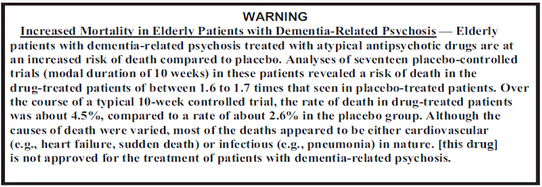|
As our population continues to age, more and more people are finding themselves in the position of needing to obtain a guardianship for an elderly family member. A guardianship is a legal relationship between a person who is unable to care for themselves (the ward) and a person or organization (the guardian) that is willing and able to take on that responsibility.
There are many reasons why an elderly person may need a guardian. They may be suffering from dementia or Alzheimer's disease and no longer able to make decisions for themselves. They may be mentally incapacitated and unable to care for their own needs. Whatever the reason, if you find yourself in the position of needing to obtain a guardianship, it is important to understand the process and what it entails. The Process of Setting Up a Guardianship 1. A family member or friend files a petition with the court asking to be appointed as guardian. 2. The court reviews the petition and sets a hearing date. The ward must be notified of the hearing date so they can attend if they wish. 3. At the hearing, the petitioner must prove that the appointment of a guardian is necessary and in the best interests of the ward. The court may also appoint an attorney to represent the interests of the ward during this process. 4. After reviewing all evidence presented at the hearing, the court will make its decision and issue an order appointing or denying the request for guardianship. 5. If guardianship is granted, the court will issue an order detailing what powers and responsibilities the guardian has regarding the care and control of the ward and their property. The guardian must then follow all rules and regulations set forth in that order. 6. The guardian has ongoing duties to maintain accurate records of all receipts and expenditures made on behalf of the ward, as well as to file periodic reports with the court detailing their actions taken on behalf of the ward. At the hearing, the judge will appoint a lawyer for the ward (if the ward does not already have one) and will appoint an investigator from Adult Protective Services (APS) to look into the situation. The investigator will meet with the ward, as well as with any other family members or friends who might be involved in their care. After completing their investigation, the investigator will make a recommendation to the judge about whether or not they think a guardianship is necessary. If the judge decides that a guardianship is necessary, they will appoint the guardian and set out specific guidelines about what that guardian is responsible for. In most cases, the guardian is responsible for making all medical decisions for the ward, as well as decisions about where they will live and what type of care they will receive. The guardian is also responsible for making sure that any bills are paid and that the ward's property is taken care of. Fiduciary Responsibility A guardian must act in a fiduciary capacity. This means that they are legally obligated to manage the finances and property of the person in that person’s best interest. This means making decisions about their finances and property that will benefit individual long term. If you intend to act as a guardian for a loved one here are some tips to help you navigate your fiduciary responsibilities as a guardian: 1. Communicate with your ward: It is important to keep lines of communication open with the person you are appointed to guardianship. They should be aware of all decisions being made on their behalf and why those decisions are being made. 2. Keep records: Keep detailed records of all decisions and financial transactions made on behalf of your ward. This will help you stay organized and be able to show why certain decisions were made if there is ever any question about it. 3. Act in their best interest: This is perhaps the most important tip of all. Always act in what you believe to be the best interest of your ward, even if it is not what they want or what is easy for you. Long-term decisions are often difficult to make, but they are necessary in order to protect your ward's interests. A guardianship is a complicated legal process, but it can be necessary in order to ensure that an elderly person receives the care they need. If you find yourself in this situation, it is important to understand what is involved in obtaining a guardianship so that you can be prepared for what lies ahead. Although a guardianship can be a big responsibility, it can also be very rewarding. If you have been appointed as a guardian, make sure you understand your powers and duties so that you can fulfill your role to the best of your ability. You've been noticing some changes in your elderly parent or grandparent lately. Maybe they're holding on to things a little too tightly, or their home is starting to look a bit like a hoarder's paradise. Or, perhaps you've seen an episode of "Hoarders" and you're wondering if your loved one might be suffering from the same condition. Whatever the case may be, it's important to approach the situation with care and sensitivity. After all, this is someone you love and you want what's best for them. Here are five tips for helping an older adult overcome hoarding:
1. Talk to them about their why The first step is to have a conversation with your loved one about their hoarding habits. It's important to do this in a non-judgmental way, as most people who hoard are already aware that their behavior is problematic but feel powerless to change it. Simply let them know that you're concerned and want to help them find a solution. Oftentimes, people hoard because they're afraid of losing something important. It could be a sentimental item from their past or something they see as valuable. Talk to your loved one about why they're holding on to things and see if there's a way to address that underlying fear. 2. Get rid of the clutter Once you've had the initial conversation, it's time to start decluttering their home. This is no easy task, and it will likely take some time (and patience!). But, it's important to get rid of any items that are no longer being used or needed. You can start by having them sort through their belongings, keeping only what is truly important to them. Then, you can slowly begin getting rid of the rest. They definitely don’t need back issues of people magazine or 75 pickle jars. 3. Identify things to donate or sell Once you've gone through your loved one's belongings, you can start donation or selling items of value. Sometimes knowing items will go to someone who needs it can help them feel more comfortable letting things go. There are likely local organizations that would love to receive donations and selling items can bring in some extra cash. 4. Organize what remains Once you've decluttered their home, it's time to start organizing what remains. This will help them find things more easily and prevent new clutter from taking over their home again. There are many different ways you can organize their belongings, so find a system that works best for them and make sure they're involved in the process. 5. Seek professional help If the hoarding is becoming a health or safety issue don't hesitate to seek professional help. There are many counselors and therapists who specialize in helping people with this condition, and they can provide valuable support and guidance. In some cases, medication may also be necessary to help manage anxiety or obsessive-compulsive disorder (OCD), which can often be an underlying cause of hoarding behavior. Hoarding is a complex issue that can be difficult to understand, let alone deal with. But if you're caring for an older adult who's started to hoard, it's important to take action. There are ways to help an older adult overcome this condition. By decluttering their home, organizing their belongings, setting limits on what they can keep, and seeking professional help if necessary, you can provide them with the support they need to live a happier and healthier life free from the clutches of hoarding.
Dementia is a disease that affects millions of people worldwide, and the numbers are only increasing as the population ages. One of the most difficult aspects of caring for a person with dementia is managing their behaviors. Outbursts of anger, aggression, and hallucinations are common in dementia patients, and they can be very distressing for both the patient and for the caregiver. In some cases, antipsychotic medication may be prescribed in an effort to manage these behaviors.
What Are Antipsychotic Medications? Antipsychotic medications are a class of drugs that are used to treat psychiatric conditions such as schizophrenia, bipolar disorder, and severe depression. These drugs work by changing the levels of certain chemicals in the brain that are involved in mood and behavior. Common antipsychotic medications include olanzapine, quetiapine, risperidone, and haloperidol. Why Are Antipsychotics Used to Treat Patients with Dementia? Patients with dementia often experience changes in mood or behavior that can be disruptive both to them and to those around them. Because antipsychotic medications can help manage these symptoms, they are sometimes prescribed “off-label” for patients with dementia even though they have not been specifically approved for this use by the FDA. However, because of the potential risks associated with these drugs, they should be used only when other treatments have failed or are not tolerated and only after a careful discussion between the patient’s caregiver and healthcare professional about the risks and benefits of treatment. The Antipsychotic Medication Black Box Warning for People with Dementia A black box warning is the strongest type of warning from the FDA. It is given to prescription medications that have potentially serious side effects. The FDA requires that manufacturers include black box warnings on the labeling of these medications. The purpose of a black box warning is to make sure that both patients and caregivers are aware of the possible risks associated with taking the medication. The specific black box warning will vary slightly for each medication but will usually read as follows: “Increased death and heart-related side effects in seniors with dementia-related psychosis: This medication isn’t approved for treating psychosis related to dementia. There is an increased risk of death in seniors (ages 65 years or older) with this condition who take this drug. Most deaths are caused by heart problems such as heart failure, or infectious conditions such as pneumonia” Generally, you can find these warnings printed on the label of your medication or on the patient information sheet provided by your pharmacy. Deciding whether or not to use antipsychotic medications with a dementia patient is a difficult decision that should only be made after careful consideration. There are potential risks and side effects associated with these medications, but there are also potential benefits. Ultimately, the decision about whether or not to use antipsychotic medication should be made by the patient's doctor in consultation with the patient's caregiver. 1. Write down your questions in advance.
2. Bring a list of medications you're taking. 3. Be prepared to talk about your symptoms in detail. 4. Take notes during the appointment. 5. Don't be afraid to ask for clarifications or more information. Going to the doctor can be a stressful task, especially if you don't know what to expect. But if you take the time to prepare for your appointment, you can make the most of the time you have with your doctor. Here are five tips on how to do just that: Make a list of questions beforehand It can be helpful to make a list of questions beforehand so that you don't forget anything during the appointment. This way, you can be sure to get all of the information you need. Bring a list of medications you’re taking It can also be helpful to bring along a list of medications including over the counter supplements that you are taking. This will help your doctor determine if there are any potential interactions. It is important to give your doctor accurate information so they can properly diagnose and treat any conditions you may have. Be prepared to talk about your symptoms in detail Be as specific as possible when describing your symptoms. Are symptoms generally better or worse in the morning or the evening? Are symptoms interfering with your sleep? Be honest with your answers. It is important to give your doctor accurate information and the more information you can provide, the better. Take notes during the appointment It can be helpful to take notes during the appointment so that you don't forget what was discussed. If you have difficulty writing you may also want to consider recording the appointment so that you can go back and listen to it again later on. Always ask for permission before recording. Ask for clarification if needed Don't hesitate to ask for clarification if there is anything you don't understand during the appointment. Medical professional can sometimes speak using medical terms or abbreviations most people aren't familiar with. The doctor will be happy to explain in more detail if you ask so that you can make the best decisions for your loved one's care. Visiting the doctor doesn't have to be a stressful experience. By following these five simple tips, you can make sure that you are getting the most out of your appointment. Remember to come prepared with questions, bring a list of medications, take notes during the appointment, be prepared to talk about your symptoms in detail, and don’t be afraid to ask for clarification when needed. With these things in mind, you can take control of your health and get the care you need and deserve. |
AuthorTyice Strahl Categories
All
Archives
May 2023
|
- Home
-
Settings
- Assisted Living
- Home Care
- Independent Living
- Memory Care
- Skilled Nursing
- Adult Family Homes
-
All Communities
>
- Aspen Quality Care
- Avamere South Hill
- Brighton Court
- Brookdale Nine Mile
- Brookdale Park Place
- Cheney Assisted Living
- Cherrywood Assisted Living
- Colonial Court
- Cornerstone Court
- Evergreen Fountains
- Palouse Country
- Fairview Assisted Living
- Fairwinds
- Fairwood
- Fieldstone Memory Care
- Good Samaritan
- Maplewood Gardens
- Moran Vista
- North Point Village
- Orchard Crest
- Pine Ridge Memory Care
- Emilie Court
- Ridgeview Place
- Riverview Retirement
- Rockwood Retirement Community
- Rose Pointe Assisted Living
- Royal Park
- South Hill Village
- Sullivan Park Assisted Living
- Sunshine Health Facilities
- Touchmark Assisted Living
- Willow Grove
- Wind River
- Alderwood Manor
- Franklin Hills
- Manor Care
- North Central Care Center
- Providence St Joseph
- Regency at Northpointe
- Royal Park Health and Rehabilitation
- Spokane Veterans Home
- The Gardens on University
- Spokane Assisted Living Directory
- Locations
- Services
- About
- Senior Living Blog
- Contact





 RSS Feed
RSS Feed
